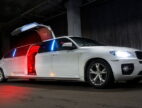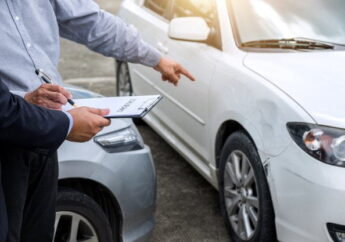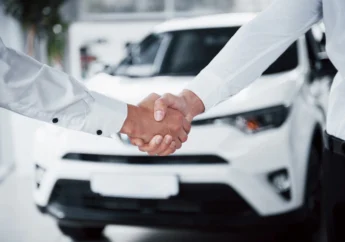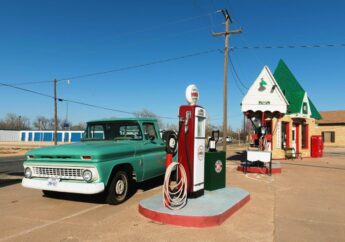Car Accident In a Company Vehicle? Here’s What You Need to Know
by Mashum Mollah Automotive 14 January 2019

You gave your employees company cars to use while performing their work. You thought this would be a good thing. Except now one of them has gotten into a car accident.
Now, what do you do? Turns out, 60% of the accidents that happen in company cars occur during the employee’s personal time. So what does this mean for you?
We are going to go over what you should do after the accident.
Who Is at Fault?
Before you do anything, you need to determine who is at fault for the accident. This will tell you who is liable for the damages caused.
You should also look at the amount of damages caused. This will include both the physical damage to the cars and any potential medical complications from the car’s occupants.
Is the Company Liable?
As the employer, you are liable for your employee’s actions while they are performing work for you. This concept is called vicarious liability.
You are liable for the accident if it occurred during the employee’s work hours, they were performing work for you, or they were on their way to work. When this happens, the employee is not liable and the company steps into their shoes.
When the company is liable, it cannot force an employee to share in the cost. If it is deemed that the employee ignored company policy, they could be fired.
Most states are at-will when it comes to employment. This means that you can be fired or quit at any time. Though it’s best to explain why you are firing an employee after an accident.
Professional Advice:
The best thing you can do after a car accident is to seek the advice of an attorney. As a business owner, you have a vested interest in the outcome of the situation.
An attorney will be able to fully explain your company’s liability. Having representation involved early on will be helpful should the situation become more complicated.
If the case ends up going to trial, then a judge will decide if your company is vicariously liable. A lawyer will know the elements the judge will consider. This will help you prepare the best argument for your case.
Contact Your Insurance:
Once you determine that your company is liable and you’ve spoken to your attorney, you’ll want to contact your insurance company.
Hopefully, you have purchased the correct insurance that will cover the accident. The insurance company will check to make sure that they will cover both the company car and the driver.
Once it is determined that you have the correct coverage, your insurance company will make payment to the third party. They will also take steps to repair your company vehicle.
If the third party is seriously injured, they may want to file a lawsuit. Your insurance company will most likely want to settle out of court. This is the cheapest option for them.
The Employee Is Liable:
Your company is not automatically liable simply because the employee was driving your vehicle. There are four times when the employee remains liable for the accident.
Criminal Activity:
If the employee is engaged in committing a crime, the employer is not liable. The only catch to this is if the employer is the one who asked the employee to commit the crime.
On a Frolic:
Frolic is a detour that the employee makes while they are supposed to be working. An example of this is when the employee is supposed to go to a customer’s home.
One the way the employee takes a short detour to visit a friend’s house. If the accident happens while the employee is on the detour, then they are liable.
Independent Contractors:
An independent contractor is not your employee. They are a separate agent that works for you.
A pizza delivery driver is an independent agent. They may work for the pizza company, but they own their own car.
Non-Business Driving:
This is similar to frolic but on a larger scale. Instead of it being a short detour, the employee is using the vehicle for personal needs.
This would include taking a road trip in the car. Or maybe they are using the car on the employee’s day off to run errands.
Worker’s Comp :
Your workers’ comp insurance may also be a part of the incident. If it is determined that the employee was working for you while injured, they may have a worker’s comp claim.
Keep in mind that the third party may be deemed responsible for the accident and you will still have a worker’s comp claim.
Your liability insurance and workers’ comp are separate insurance policies. This means you may have a claim for one or the other or both.
Car Accident:
When a car accident happens it is always stressful, but that stress compounds when it happens in a company car.
The first step is to determine what the damages and injuries are. Then you’ll want to determine who is at fault.
If your employee is the one at fault, then you’ll want to determine if they or the company is liable. If you are unsure, it is best to seek legal advice.
The smartest choice, if the company is liable, is to encourage a settlement out of court. This will be the cheapest and fastest solution.
Keep in mind that your workers’ comp might be called upon to cover your employee’s injuries. This will happen if it is determined your employee was working when the accident happened.
Looking for more automotive-themed topics? Be sure to check out our blog.
Read Also:







































































































